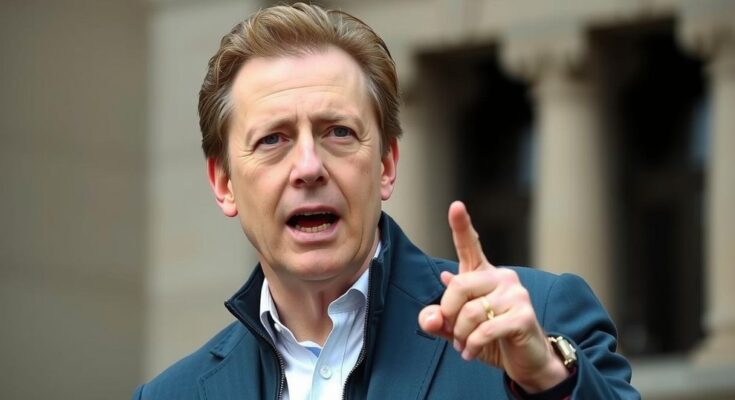Elon Musk’s recent op-ed endorsing Germany’s AfD has stirred controversy as he labels the party as essential to saving the country from economic decline. His remarks sparked outrage among German politicians who warned against foreign influence in the elections. Concerns about media ethics and the implications of a billionaire’s endorsement on political discourse have emerged amidst the upcoming electoral backdrop.
On December 30, 2024, US billionaire Elon Musk expressed his support for the far-right Alternative for Germany (AfD) in an opinion piece for the Welt am Sonntag. Musk characterized the AfD as “the last spark of hope for the country,” asserting that it could prevent Germany from experiencing economic and cultural decline due to its “controlled immigration policy.” This endorsement sparked controversy within Germany, leading to backlash from political figures and the media. Critics, including Friedrich Merz, the center-right chancellor candidate, accused Musk of inappropriate interference in German elections and likened him to authoritarian figures attempting to destabilize democratic processes.
Musk’s commentary has reignited discussions regarding press freedom in Germany, an issue steeped in the nation’s complicated history. While German media has the constitutional right to express political opinions, critics stress the importance of objectivity, particularly in relation to electoral integrity. The op-ed, however, raised ethical concerns about media independence and the desire of powerful individuals like Musk to influence political narratives in foreign markets.
Additionally, Musk’s supportive remarks toward the AfD align with the interests of his business, particularly regarding regulatory frameworks beneficial for businesses like Tesla’s operations in Germany. Notably, he has a history of utilizing his platform to back right-leaning politics globally, raising awareness about potential impacts on political stability. The German public is now grappling with the implications of this high-profile endorsement, assessing its ramifications on the political landscape as the February elections loom.
The endorsement of the far-right AfD by a prominent international figure such as Elon Musk has provoked a significant discourse regarding the intersection of politics, media, and business in Germany. The AfD’s rise in popularity, currently polling at 20 percent, highlights the party’s appeal amidst economic challenges and cultural debates surrounding immigration and national identity. As an influential billionaire, Musk’s comments are perceived as a substantial intrusion into the German political sphere, prompting concerns from various politicians and media organizations about the integrity of democratic processes in the run-up to elections.
In conclusion, Elon Musk’s public support for the Alternative for Germany represents not only a challenge to the established political order in Germany but also raises significant questions about the ethical responsibilities of media outlets when publishing opinions from influential figures. The response from German political leaders underscores the tension between foreign influence and domestic electoral integrity, while Musk’s actions also reflect broader themes concerning the role of billionaires in shaping political landscapes worldwide.
Original Source: www.dw.com




